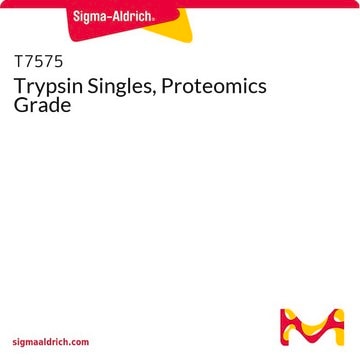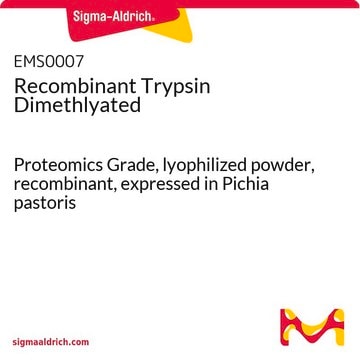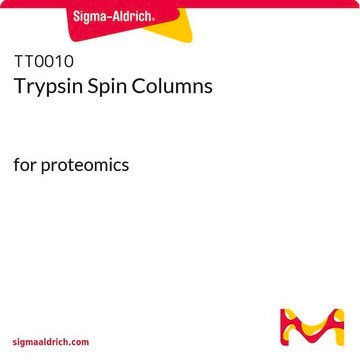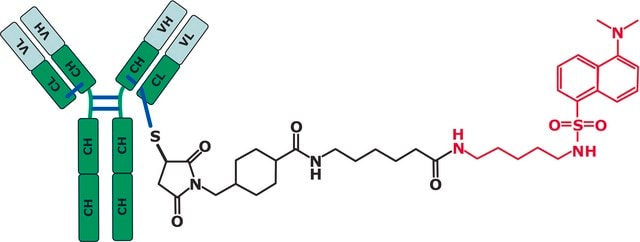EMS0004
SOLu-Trypsin
recombinant, expressed in Pichia pastoris, Proteomics Grade, liquid
Synonym(s):
Protein Digestion for Mass Spectrometry, Ready to Use Recombinant Trypsin for Protein Digestion in Mass Spectrometry, Recombinant Trypsin for Protein Digestion in Mass Spectrometry, Trypsin for Protein Digestion, rTrypsin
About This Item
Recommended Products
Related Categories
General description
Application
- has been used to digest the gel pieces for mass spectrometry identification of active deubiquitnases (DUBs)
- has been used in trypsin sensitivity assay
- may be used for the digestion of wine proteins
Biochem/physiol Actions
- SOLu-Trypsin (EMS0004) is our exclusive, Advanced Proteomics Grade enzyme that is solution-stable for mass spectrometry.
- Designed to be stable in solution when refrigerated, SOLu-Trypsin can be used immediately without preparation.
- Other forms of trypsin require thawing or reconstitution, and must be discarded if not used immediately.
- SOLu-Trypsin allows excess product to be saved for future use, thus eliminating unnecessary waste and cost.
- It is formulated with a high-purity recombinant trypsin, free of chymotryptic activity, to ensure high fidelity digestion.
Features and Benefits
- Ready to use - no preparation, such as reconstitution or thawing, is required
- Fits seamlessly into established workflow - no need to modify protocols
- Eliminates waste - remains stable in the refrigerator after use so there is no need to discard excess product
- Recombinant, porcine sequence - no chymotryptic activity
- Stable for short-term use at room temperature in an autosampler or on a liquid handling robot
Storage Class Code
10 - Combustible liquids
WGK
WGK 1
Flash Point(F)
Not applicable
Flash Point(C)
Not applicable
Certificates of Analysis (COA)
Search for Certificates of Analysis (COA) by entering the products Lot/Batch Number. Lot and Batch Numbers can be found on a product’s label following the words ‘Lot’ or ‘Batch’.
Already Own This Product?
Find documentation for the products that you have recently purchased in the Document Library.
Customers Also Viewed
Articles
Evaluation of Recombinant, Chemically Treated Trypsin in Proteomics and Protein Characterization Assays
Pretreatment with Mucinase StcE increases glycopeptide identification from mucin samples, enhancing sample preparation efficiency for glycopeptide analysis.
Pretreatment with Mucinase StcE increases glycopeptide identification from mucin samples, enhancing sample preparation efficiency for glycopeptide analysis.
Pretreatment with Mucinase StcE increases glycopeptide identification from mucin samples, enhancing sample preparation efficiency for glycopeptide analysis.
Our team of scientists has experience in all areas of research including Life Science, Material Science, Chemical Synthesis, Chromatography, Analytical and many others.
Contact Technical Service